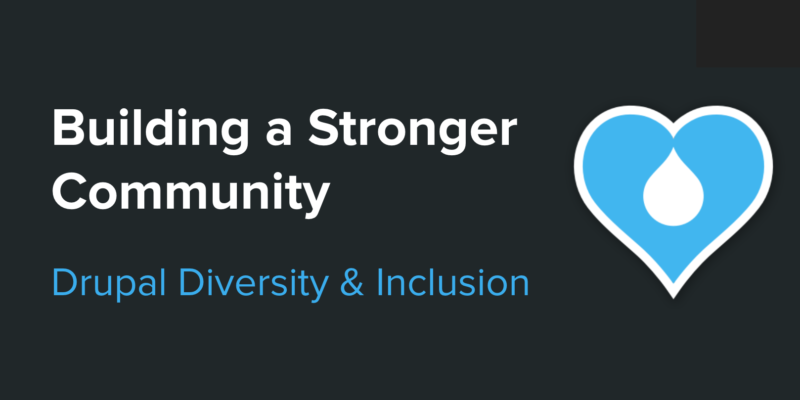In the Drupal diversity and inclusion working group, we are often asked how people can improve the diversity of their tech events. I wrote up some thoughts about this today and thought it would be useful to share here as well.
The most important thing you can do is have your leaders look how you would like your speakers and attendees to look. No matter how well intended, a group of men is going to be less successful recruiting women, and an all-white group will not be able to recruit as many speakers of color.
Representation in leadership matters both because people can do outreach more effectively within their own communities, but also because even strangers will look at that and get more of a sense that they would be comfortable and welcome at the event.
Ashe Dryden is a former Drupaller who is an expert in both diversity and conferences. Here’s a post she wrote which is chock full of examples and links to other good articles. And here is Ashe’s talk at DrupalCon in 2013, which really helps to explain the whole challenge of this stuff. I was at this talk in person and it was awesome.
Beyond leadership, here are two practical articles for event organizers: Women speakers, How I got 50% women speakers at my tech conference. They focus on recruiting women, but we need to go beyond white women if we want really diverse and representative events. Many of these principles apply for outreach to other marginalized groups like people of color, people from other countries, low-income people, people with disabilities, non-Christian people, etc.
It’s good to broadcast your intentions to be more inclusive, but you really have to work one-on-one to make a change. You often have to tell people that they would be good speakers because when we spend our whole lives being marginalized, we often lack the confidence of the average white guy.


